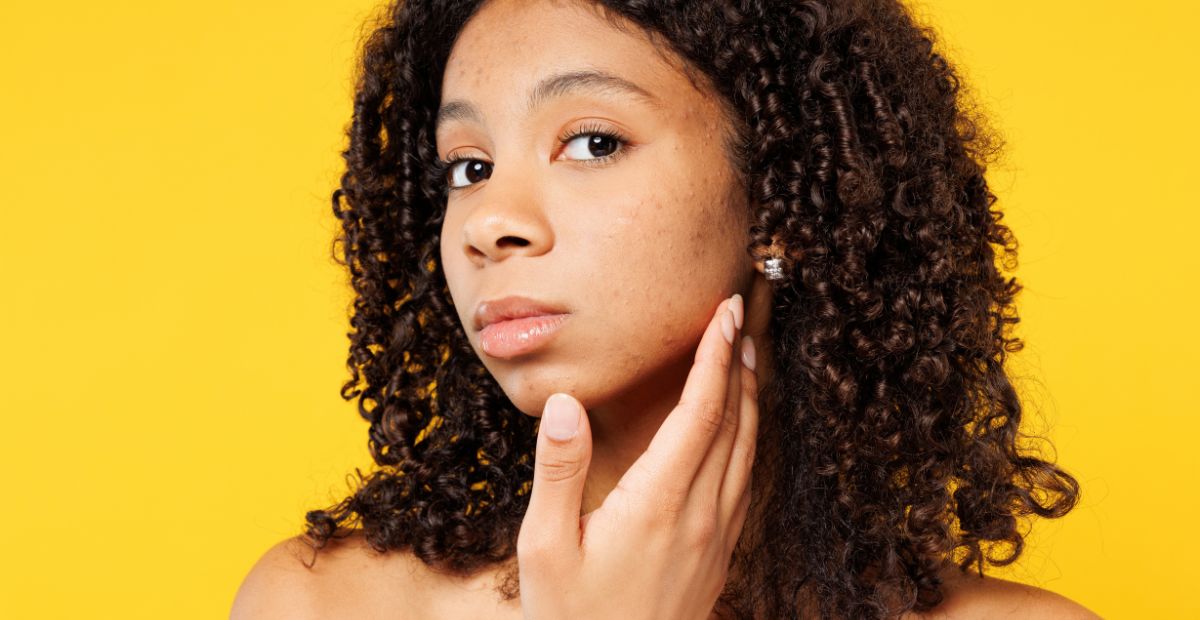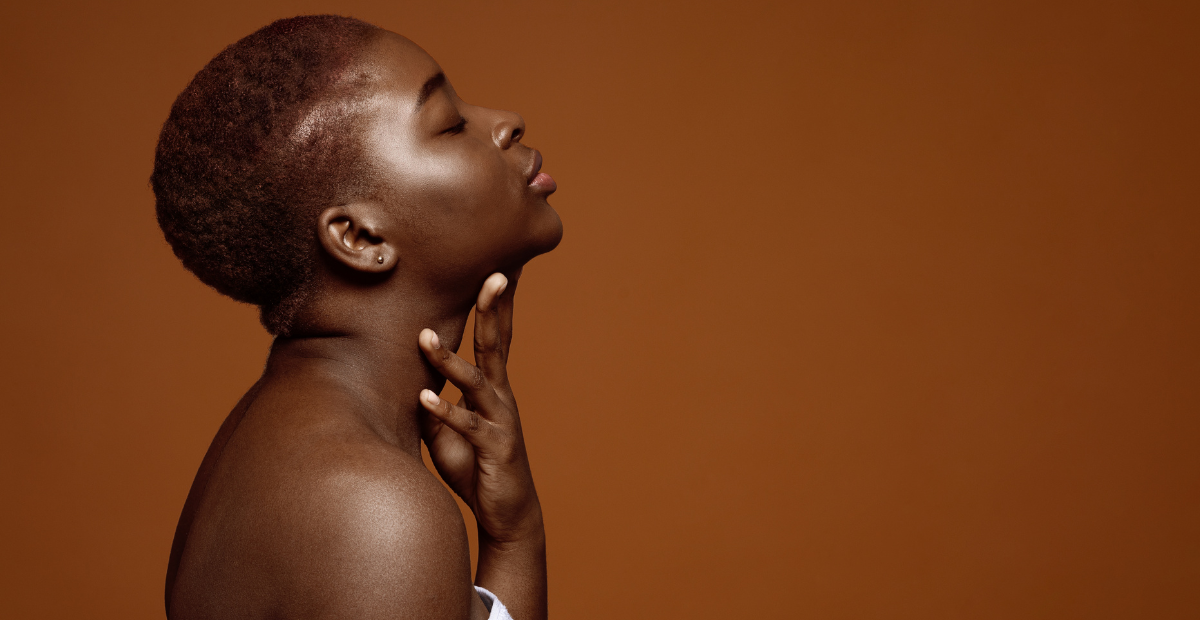Top 5 Face Issues Caused By Stress And How to Deal With Them
Onskin Content Team
Your guides through the skincare chaos
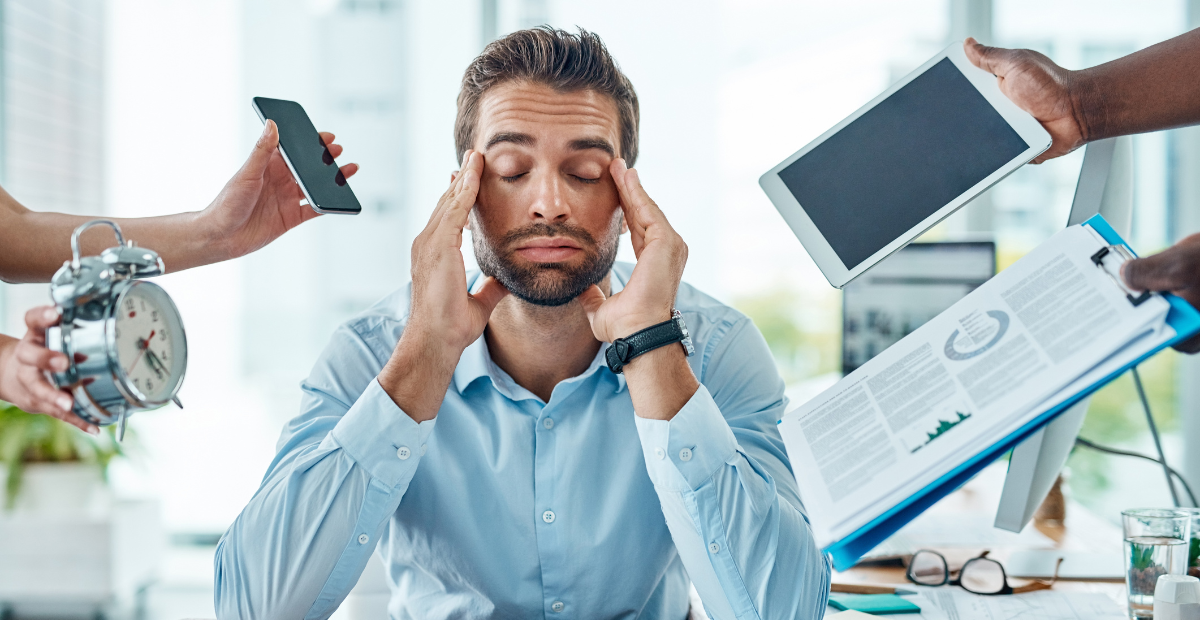
Imagine waking up one morning and having bumps all over your forehead, breakouts on the cheeks, and red spots all over your face. You might probably think that’s just a bad day for your skin. “Don’t exaggerate, easy come, easy go,” you may tell yourself. In fact, the problem can lie deep and be caused by the invisible weight of stress you are carrying. Let’s find out how emotional upheavals affect our skin and what we can do to avoid face issues caused by stress.
5 most common face issues caused by stress
Tough deadlines, hectic lifestyle, demanding jobs, and personal concerns can frequently cause stress. Our modern lifestyle suggests that we cope with it on a daily basis, thus making stress management yet another part of our routine. The effect of stress goes far beyond our emotional state, it can adversely affect our skin as well.

So, these are the most common issues we face when our mental condition leaves much to be desired:
1. Acne
Looking in the mirror will be enough to see the most visible effects of stress. Yes, these are emerging acne and breakouts that catch your eye straight away and spoil your mood for the rest of the day. It works pretty simply—our body produces hormones under stress, such as cortisol and adrenaline, which lead to changes in our organism. Cortisol boosts oil release from sebaceous glands, leading to, for instance, clogged pores and acne.
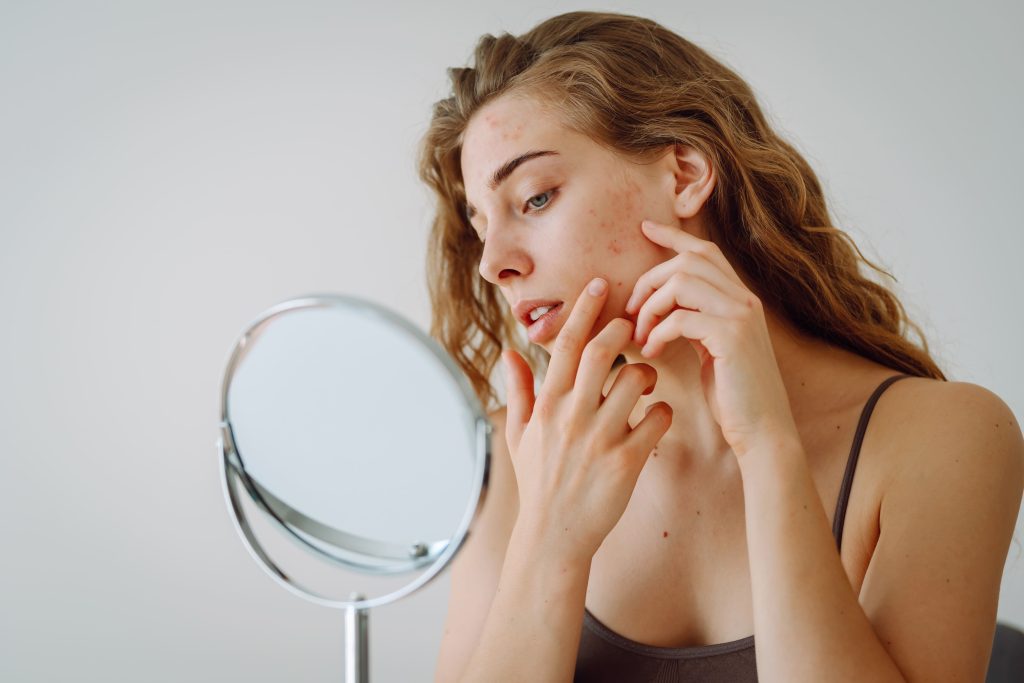
You’re absolutely right—cortisol looks like a baddie here. In general, this hormone is very important for our health, but too much of it can be harmful.
2. Skin Aging and Wrinkles
Yet again, cortisol is to blame. Stress hormones break down collagen and elastin in your skin, thus making it harder for the skin to rejuvenate. Stress can also cause changes in our nervous and immune systems. All these work together and contribute to the ways our skin ages.
And don’t forget that worrying makes you frown, which can cause fine lines and wrinkles over time.
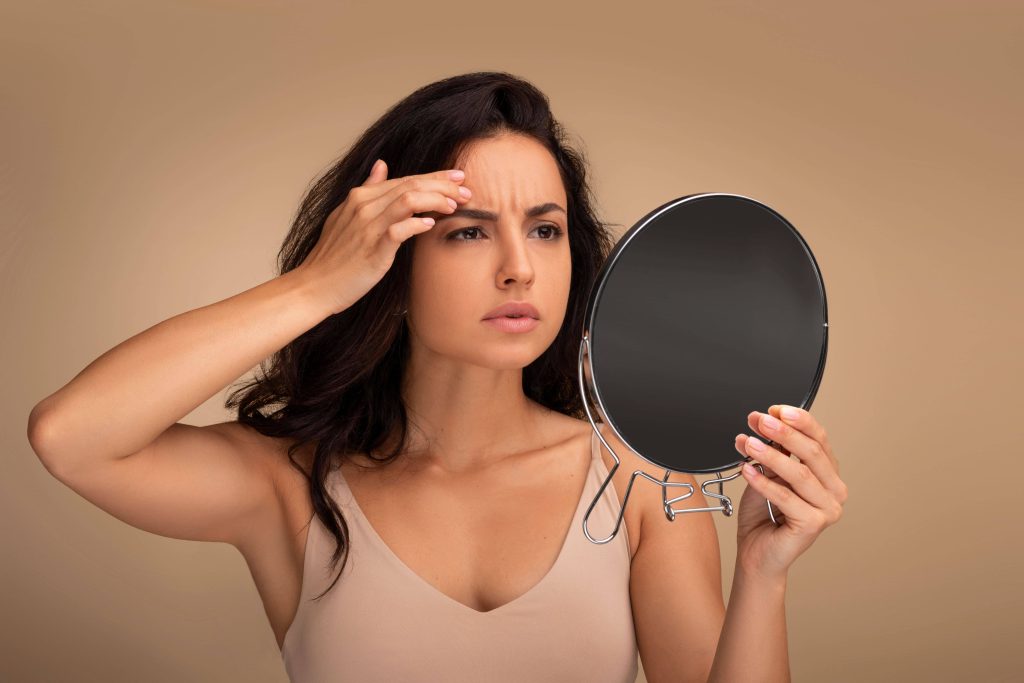
3. Rashes
Now let’s give cortisol a break for a moment. Stress and anxiety make your immune system weaker. They trigger inflammation in the body and can lead to rashes. Stress rashes usually show up as hives and are commonly found on the face, though they can be anywhere on your body.
Psoriasis and dermatitis, welcome to the club. These skin diseases can also be triggered or aggravated by stress.
4. Dark Circles
Have you ever tried to fall asleep by counting sheep? There’s nothing to be ashamed of, we all did that at least once. Lack of sleep, often caused by stress, can make your skin less elastic. When your skin loses this quality, it can sag and lead to dark circles under your eyes.
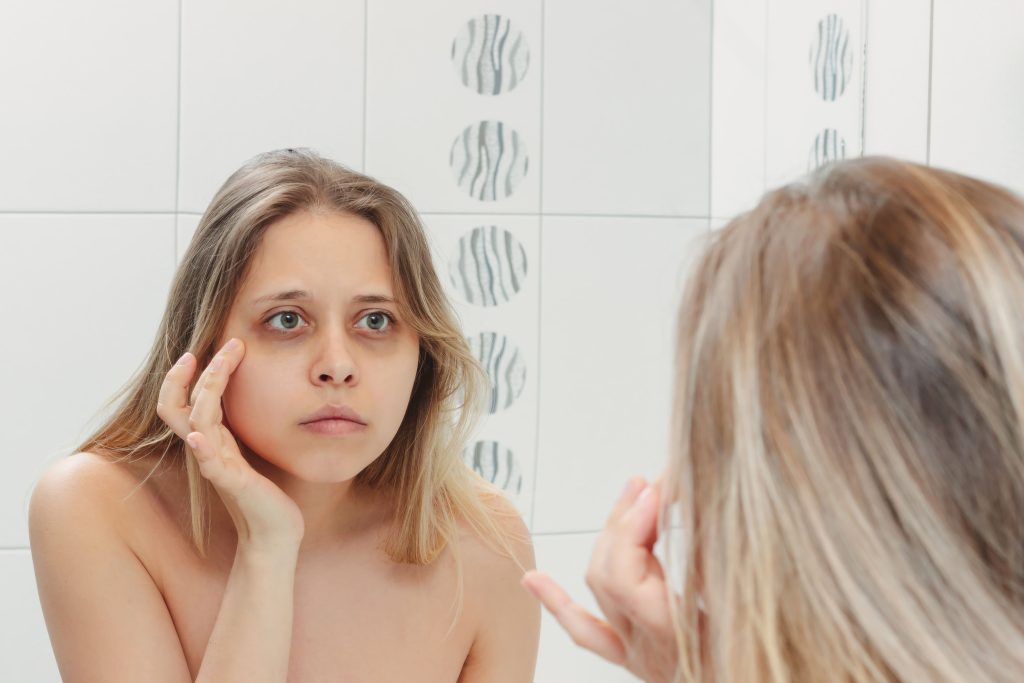
5. Dry Skin
Stress hormones can also weaken your skin’s barrier and make it dry out faster.
The protective layer of your skin, made up of proteins and lipids, helps keep your skin hydrated and protects the layers beneath it. If this barrier isn’t working properly, your skin can become dry and itchy.
What can we do deal with face issues caused by stress?
Now we are aware that stress can significantly impact our facial skin. Understanding these effects is the first step towards finding solutions. So, let’s find out how to deal with it.
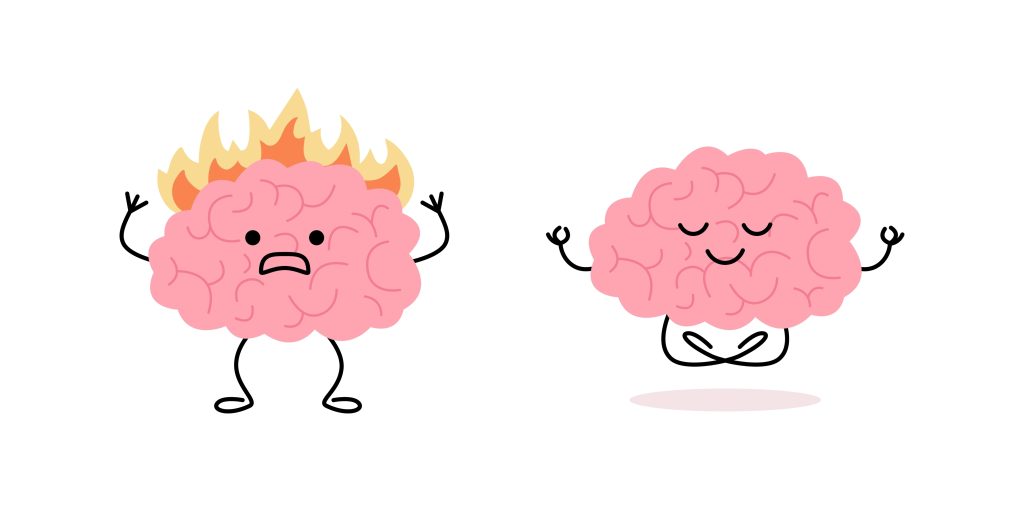
Mind-body practices
The most effective way to deal with the consequences of stress is to reduce it. According to the American Academy of Dermatology, mind-body practices can help with that. These practices, scientists say, work best when combined with other treatments. Here are some common examples:
- Meditation: This involves focusing your mind or clearing your thoughts, which can help lower blood pressure and reduce anxiety and depression.
- Acupuncture: This technique uses thin needles inserted into the skin to relieve pain and reduce stress. It may also help lessen tension headaches and prevent migraines.
- Visualization: This method involves using your breath and imagination to picture positive images or ideas, helping you achieve a specific feeling or mindset.
- Breathwork: This focuses on breathing exercises designed to help you control your breath.
- Tai Chi or Qigong: These are martial arts practices that improve balance and can help reduce back pain.
- Yoga: This combines physical movements, breathing techniques, and relaxation. Yoga aims to improve mental and emotional health, sleep, and balance.
Improve your lifestyle
The way we live also determines the effect of stress. For sure, we can’t fully control it, but it still can make a difference.
- Take breaks from the news: While it’s good to stay informed, too much negative news can be upsetting. Take breaks from your phone, TV, and computer and do not read or watch the news nonstop.
- Eat well: Focus on a balanced diet with fruits, vegetables, lean proteins, and whole grains.
- Get enough sleep: It’s best if you go to bed and wake up at the same time. Try to sleep no less than 7 hours.
- Move more: Aim for at least 2.5 hours of physical activity each week.
- Limit alcohol and don’t use drugs.
- Quit smoking: If you smoke or vape, try to give it up.
- Don’t skip health appointments: Check your health regularly, go to screenings and vaccinations.
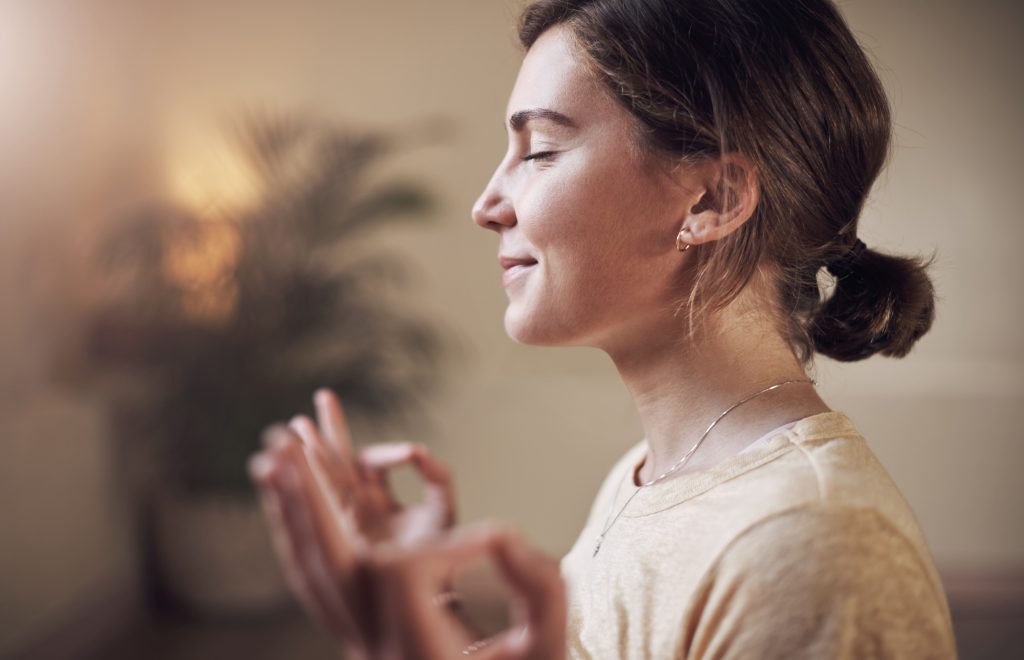
If you feel that changing your lifestyle is not enough, please don’t hesitate to consult a good psychologist. Talking to a specialist regarding your concerns can be of much help.
Do care about your skin
The way to treat your skin depends on the face issues caused by stress. For instance, it’s better not to use harsh products or skip moisturizers to deal with acne.
Products that contain niacinamide also help you fight against acne. Moreover, this ingredient works well with other stress-driven face problems. It makes your protective layer stronger, prevents your skin from premature aging, and boosts the production of collagen, which results in softer fine lines and wrinkles.
In fact, there’s no real need to plunge into the whole world of ingredients and formulas, trying to remember all the pros and cons. With the help of OnSkin app you can simply scan the product you use or the one you’re going to buy and find out about all the benefits of actives in their formula. The scanner will also tell you whether this or that product is a match for you, depending on your skin type and the issues you’re facing right now.
FAQ
-
Where do I start with OnSkin?
Download the app and think of a product you’d like to know more about. Then, go to the main screen and choose how you’d like to get the info —by manually looking it up in the search bar, by scanning its barcode, or by simply taking a picture of the packaging. Once you’ve done any of these, you can see how safe the product is and if it suits your skin or hair (if this analysis is available).
-
What is Safety Rating, and how is it calculated?
In OnSkin, we base product rates on ingredients. Each is closely studied by our medical team and then evaluated. This way, each product gets a score from 0 to 100, with 100 as the safest level.
Safety Levels
- Excellent (76–100)
- Good (51–75)
- Not great (26–50)
- Bad (0–25)
These scores are backed by the latest scientific studies. You can find links to the resources we’ve used on each ingredient page. To assess the safety of product ingredients, we evaluate them according to the following parameters/criteria
- Endocrine disruption risk / Reproductive toxicity
Indicates the probability of mimicking, blocking, or interfering with the body hormones.
- Сarcinogenicity
Measures the potential risk of inducing cancer.
- Allergy risk
Estimates the probability of an allergic reaction.
- High concentration alert
Determines the risk of being unsafe in certain amounts.
-
What is Skin Match?
Based on the info you input about your skin type, age, skin care goal, and other “settings,” OnSkin checks how well a product is tailored to your unique skin needs — it’s basically like a dermatologist helping you find the right products, minus the fees and the long wait. The product you’re checking might be labeled as It’s a match!, Hit-or-miss, or Not a match for you. The app also detects ingredient groups such as Anti-acne, Anti-inflammatory, Moisturizes, May be drying, Comedogenic, and others — by tapping one, you see exactly what ingredients from this or that group are in the product.
-
I seem to have a problem with using the app. Who should I contact?
Please reach out to us at [email protected], and we’ll carefully look into your issue. Your ideas for improving the app are also very welcome!
-
Do you have an Android version?
Not yet! Hey Android users, we hear you, and we're thinking about making an Android version, but we haven't started the development yet.
Tracker Sent!
It’s on the way to your inbox.


